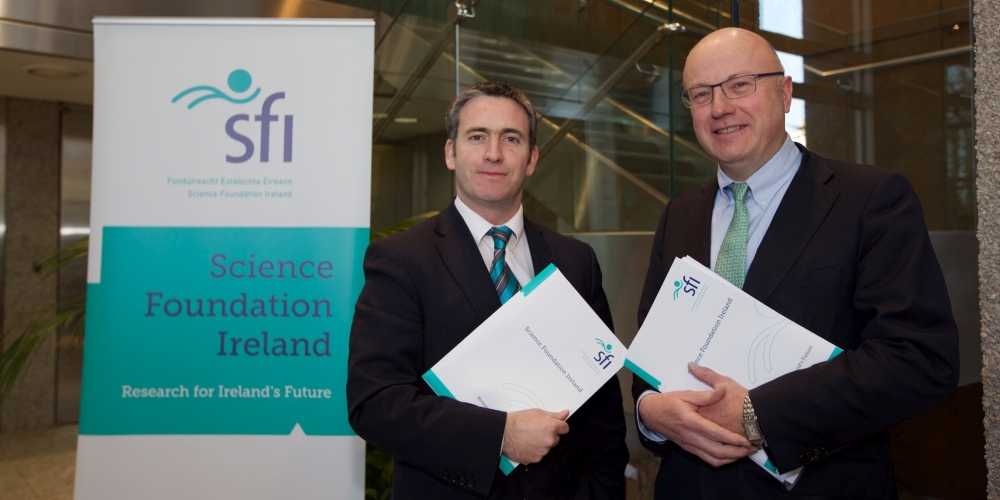The goals outlined in Ireland’s ambitious science strategy are eminently achievable provided that both the state and industry continue funding research, the government’s chief scientific adviser Mark Ferguson has told Dick Ahlstrom.
Ferguson advises the Irish government on science strategy and he is also the director-general of the national funding body Science Foundation Ireland. He was heavily involved in the development of the strategy, Innovation 2020, launched in December 2015.
One could argue that he has to talk up the potential of the strategy, but there is little doubt that he firmly believes it can deliver benefits for Ireland. The strategy could make the country an innovation leader and an international hub for investment in this field, he says.
Funding will be the main issue as the strategy is rolled out. At present about one-third of the national research budget is provided by the state and two-thirds by industry. More funding will have to come in from both sides of the equation if Ireland is to advance, Ferguson says.
“We have to make sure we can draw additional funds from government and we also need more money from the private sector. It is about making sure we get deeper engagement with industry and targeting industry to build more R&D facilities in Ireland,” he says.
The government’s development agencies actively target research-driven companies when seeking direct investment from abroad and many firms based in Ireland are increasing their investment in local research activities. Five years ago the technology and consultancy firm IBM only had a handful of staff involved in research but now the figure is 1,500, Ferguson says.
“We have many multinationals here now and we need to get them doing more research here. It makes companies more embedded in Ireland,” he says. “I think this is doable. It is challenging but eminently achievable.”
However, reaching the levels of spending needed to achieve Innovation 2020 targets will be a tall order. The plan is to boost Ireland’s spend on R&D from 1.8 per cent to 2.5 per cent in the run up to 2020.
Companies willing to set up research units in Ireland will want to be convinced that they will see returns, he says. They will also want to know that there is a pool of trained scientists available to populate in-house research units.
For this reason the strategy places a strong emphasis on developing talent right along the continuum from blue-sky research to product development.
“Talent underpins everything,” Ferguson says. “Delivering the whole spectrum of talent is important. There is also a strong commitment to supporting entrepreneurship.”
The process starts with “bright young people” who can either remain in academic research or move on to work in companies setting up in Ireland, Ferguson says. Ensuring that these people are of the highest calibre will build Ireland’s reputation abroad and encourage more companies to relocate there..
Reputation building is also a factor behind the strategy’s emphasis on tapping into the EU’s Horizon 2020 research budget. “We have to have full participation in EU programmes. This is important for a small country like Ireland,” he says. “Participation in Horizon 2020 will also help researchers here move into leadership roles. We need to run more large projects but also participate in more consortia.”
The strategy also paves the way for Ireland to participate in Cern and the European Southern Observatory, opening up R&D opportunities for Irish scientists. “This allows us to leverage pieces of infrastructure we can’t leverage on our own,” he says.
Irish scientists have welcomed the fresh emphasis placed on support for basic research. The Irish Research Council plans to develop a funding programme for young scientists looking to carry out work in these areas. The past five years have seen government support for basic research downplayed, but the Council’s programme will address that deficit, he says.
Ferguson says that the way forward is clear; the Irish government intends to encourage more basic and more applied research, and to maintain a balance between the two.
“We will support the full spectrum from frontier research through to industrial research, but all of the research has got to be excellent and pursued against a backdrop of increased investment by the state and private sector.”
This article was first published in Research Professional

